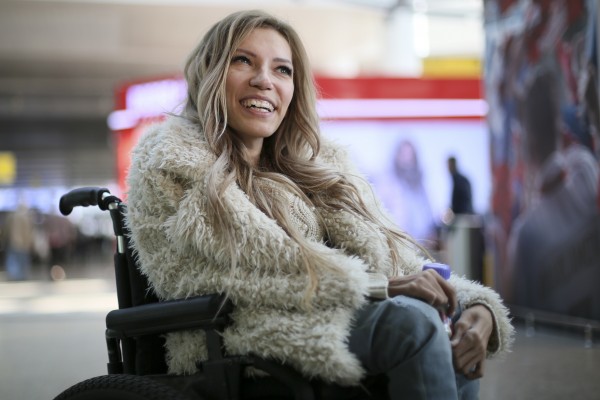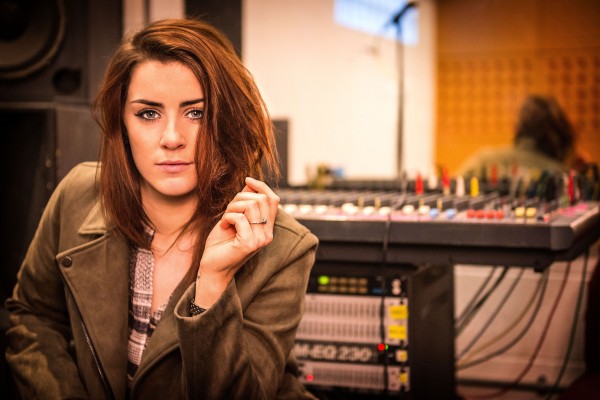
Russian television station Channel One has announced that it will not broadcast the Eurovision Song Contest this year or take part in the competition because its contestant has been barred from host country Ukraine.
The statement came in Thursday’s evening news bulletin after a dispute over whether Russia’s entrant Julia Samoylova would be allowed to attend the event in Kiev because she had toured in Crimea in 2015 after it was annexed by Russia.
The European Broadcasting Union (EBU), which produces the competition, had apparently told Channel One that it had been unable to resolve the dispute.

Possible solutions that had been suggested by the organisation were for Julia to perform via satellite from Russia or for the contestant to be changed to one who could legally travel to Ukraine, both of which Channel One had turned down.
A statement from the EBU read: “Unfortunately this means Russia will no longer be able to take part in this year’s competition.
“We very much wanted all 43 countries to be able to participate and did all we could to achieve this.”
Frank Dieter Freiling, chairman of the Eurovision Song Contest Reference Group, the event’s steering committee, said: “We strongly condemn the Ukrainian authorities’ decision to impose a travel ban on Julia Samoylova as we believe it thoroughly undermines the integrity and non-political nature of the Eurovision Song Contest and its mission to bring all nations together in friendly competition.
“However, preparations continue apace for the Eurovision Song Contest in the host city Kiev. Our top priority remains to produce a spectacular Eurovision Song Contest in May.”
Tensions between Moscow and Kiev have been high since the 2014 annexation of Crimea and the beginning that year of a Russia-backed separatist insurgency in east Ukraine that has killed nearly 10,000 people.

The EBU had previously said of Ukraine’s decision: “We are deeply disappointed in this decision as we feel it goes against both the spirit of the contest, and the notion of inclusivity that lies at the heart of its values.”
Ukraine won the right to host this year’s final when Crimean Tatar singer Jamala won last year’s contest with a song about the suffering endured by her ancestors during the deportations of Soviet dictator Josef Stalin.
Many Russians bristled at the song, which they saw as a tacit criticism of Crimea’s annexation.
In 2009, the EBU rejected Georgia’s entry, a disco-flavoured song called We Don’t Wanna Put In, a barely veiled criticism of Russian leader Vladimir Putin in the wake of the previous year’s short war between Georgia and Russia.
The Eurovision Song Contest’s grand final is due to take place in Kiev on May 13.


Comments: Our rules
We want our comments to be a lively and valuable part of our community - a place where readers can debate and engage with the most important local issues. The ability to comment on our stories is a privilege, not a right, however, and that privilege may be withdrawn if it is abused or misused.
Please report any comments that break our rules.
Read the rules here